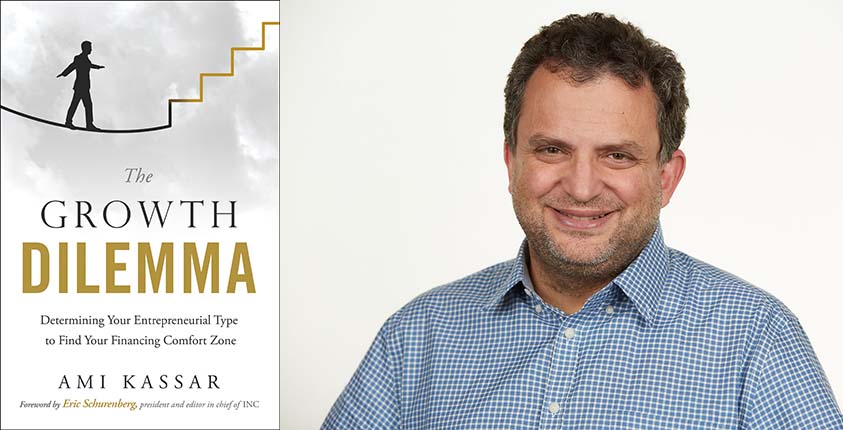Book Review: The Growth Dilemma by Ami Kassar

“Have you ever met an entrepreneur who is happy with their lot? Most entrepreneurs I work with are always pushing for their companies to grow and get bigger. At the same time, they struggle with decisions about how big they want to become, how much money to reinvest, and how to go about it. They want more, but they’re not sure how to think about the problems, obligations, and risk that often come with growth. This is what I call the growth dilemma.”
Want to read The Growth Dilemma?
Order it today.
That’s how Ami Kassar begins his new book The Growth Dilemma, and it summarizes pretty clearly the problem that this book is trying to solve. People want their businesses to grow, but they aren’t clear on the best way to do that, especially about the best way to finance that growth. The Growth Dilemma explores that problem, discussing the possible solutions and, more importantly, what factors go into deciding which option is the best for a specific business.
Read the book and you’ll learn about the differences between debt financing and equity financing, and how either choice affects your business in the present and down the road. But the real highlight of the book are the 15 profiles of different businesses owners discussing both their general approach to business growth as well as the details of their situations. And these details aren’t just presented as vague generalities to give you a rough estimate of the business’s situation; many of these profiles feature precise revenue numbers, growth targets, and investment strategies (in both the business itself as well as the market). Getting that kind of honesty from his interviewees allows Kassar to make his profiles feel much more real and applicable, and easier for readers to find specific scenarios they can identify with.
A key point to the entire book is that not all businesses are the same, and those differences will determine what financing strategies fit best. Those differences can include the nature of the business itself, the business owner’s personality, the business’s stage of existence, the business’s specific immediate and long-term needs, and more. There is no one-size-fits-all answer. The key for a business owner looking to grow is not to just “do something,” but to do the right thing for the right need at the right time, and Kassar’s book provides a good framework for understanding how to figure that out.
Kassar asks each individual he profiles the same two questions, one about receiving a gift of $1 million and another about a loan of $1 million with a 6% interest rate over a 10-year term. The way each business owner responds to those questions is revealing of their lifecycle stage, risk tolerance, approach to growth, and more. The responses are sorted by several categories: “Tortoises” and “Hares;” “Growers,” “Gliders,” “Speed Bumpers,” and “Exiters;” “Risk-Averse,” “Risk-Neutral,” and “Risk-Flexible;” and “Conservative,” “Moderate,” “Aggressive,” and “Rocket Ship” growers.
Keeping with the remarkable transparency and honesty of the individuals profiled in the book, Kassar is equally transparent about himself and his business. He uses his own business as the final case study, and is open about sharing where he fits in his various categories. He’s clear about his personal bias toward the “Tortoise” approach, favoring debt over equity, but he’s fair in talking about the pros and cons of each side. He’s not interested in selling you on one approach over another, but on understanding what the right approach is for you. He’s found the answer that works for him, and wants you to do the same.
You can learn more about Ami Kassar and his book at www.growthdilemma.com, where you can get a personalized growth dilemma report, and order The Growth Dilemma on Amazon.
[latest_posts header=”Related Posts” limit=”” category=”29″]
